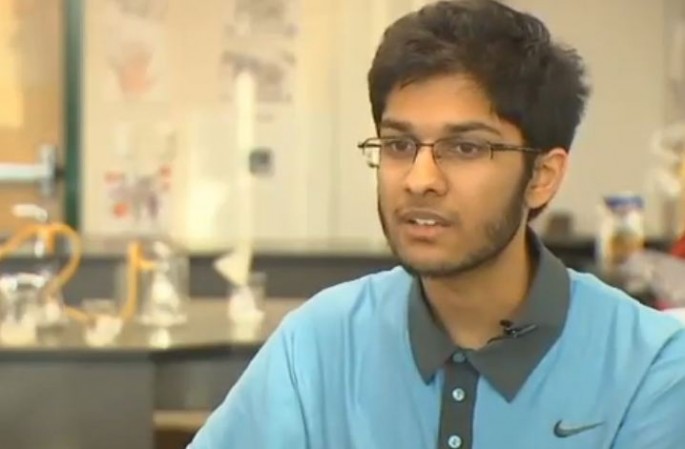An Indian-American high school student has discovered an easier way to desalinate salt water into drinkable or potable water, a discovery that might go far in solving a worldwide shortage in drinkable water.
Chaitanya Karamchedu, who studies at the Jesuit High School Senior in Portland, Oregon, has developed a process that isolates drinkable water from the ocean in a cost effective way. Details of his discovery haven't been fully revealed but scientists that have seen it say it works.
"The real genesis of the idea was realizing that sea water is not fully saturated with salt," said Karamchedu.
By experimenting with a highly absorbent polymer, Karamchedu discovered a cost effective way to remove salt from ocean water and turn it into fresh water.
"It's not bonding with water molecules, it's bonding to the salt," said Karamchedu.
This spark of creative insight is what sets Karamchedu's discovery apart from other, more expensive and more complex desalination methods. Existing desalination methods focus on the 10 percent of water that's bonded to the salt in the sea and not on the 90 percent that's free.
"People have been looking at the problem from one view point, how do we break those bonds between salt and the water? Chai came in and thought about it from a completely different angle," said Jesuit High School Biology teacher Dr. Lara Shamieh.
Karamchedu's discovery is being hailed as a breakthrough that's will impact millions of lives if it's implemented on a mass scale.
"What this is compared to current techniques, is that it's cheap and accessible to everyone. Everyone can use it," said Dr. Shamieh.
Karamchedu noted that one in eight people don't have access to clean water, noting "it's a crying issue that needs to be addressed. He decided he'd be the one to take up this challenge using the facilities in his high school's lab.
"The best access for water is the sea, so 70 percent of the planet is covered in water and almost all of that is the ocean, but the problem is that's salt water," said Karamchedu.
"Scientists looked at desalination, but it's all still inaccessible to places and it would cost too much to implement on a large scale."
Karamchedu won a $10,000 award from the U.S. Agency for International Global Development at Intel's International Science Fair and second place at MIT's TechCon Conference where he won more money to continue his research.



























